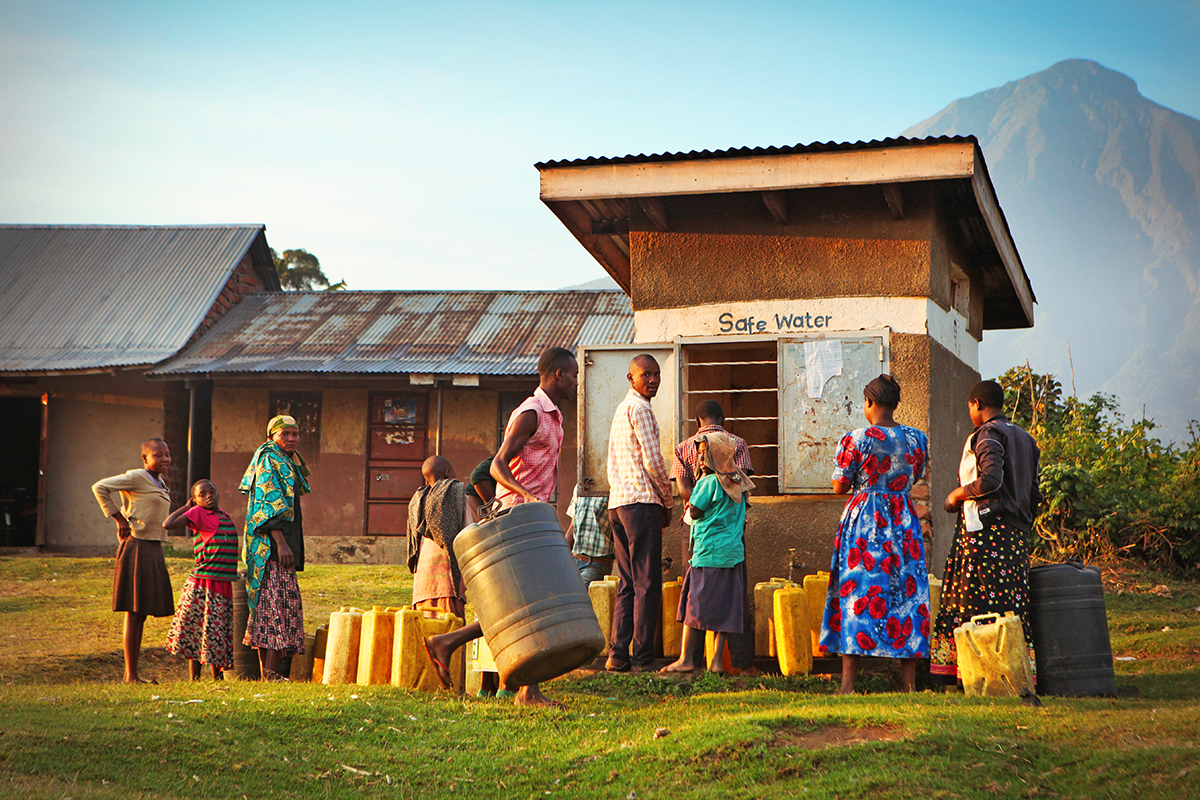Catchment based integrated water resources management for climate change adaptation in Uganda
Submitted by Nitya Jacob 7th November 2022 7:54
Catchment based integrated water resources management for climate change adaptation in Uganda
In this project, that was implemented in the Mpanga, Rwizi and Aswa Catchments in Albert, Victoria and Upper Nile Water Management Zones, respectively, communities were supported to develop integrated catchment-based water resources planning and implementation of catchment based water resources management plans. The overall objective of the project was to support catchment based planning, management and development of water resources to enhance the adaptive capacity to climate change of the population in these catchments. As a result of the project the beneficiaries should be able to adapt to the impacts of climate change while improving their livelihoods through the various small scale projects.
The key outputs of the project are:
- Preparation of Catchment Management plans: Catchment Management Plans for Mpanga, Rwizi and Aswa catchments have been prepared and include strategies and actions for enhancing the adaptive capacity of communities to climate change. These plans are guiding coordinated development and management of water and relates resources in the 3 catchments.
- Implementation of climate change adaptation measures from Catchment Management Plans: The measures have been implemented in 8 priority hotspot catchments in Mpanga, Rwizi and Aswa catchments. These measures aim at enabling the communities to adapt to impacts of climate change and improve their livelihoods and include soil and water conservation, tree planting. These have been appreciated by stakeholders as have resulted in improvements in the quantity and quality of water serving various water supplies, and reduction in flooding and soil erosion. As a result of the good work done these catchments have hosted a number of stakeholders including development partners in water and environment sector, Non Governmental organisations, local governments and Catchment Management Committees of other catchments in the country that are interested in learning about the progress of implementation of catchment management interventions and benefits therein. Protection of water catchments includes improvement of people’s livelihoods and these continue to be given priority by all key stakeholders including the community based on the benefits are already being realized.
- Establishment and operationalization of stakeholders’ coordination and collaboration platforms: These are in form of Catchment Management Committees for Mpanga, Rwizi and Aswa catchments. These provide opportunities for sharing information and raising awareness on adaptive mechanisms to climate change. Overall a minimum of 8 meetings of the Catchment Management Committees have been held per catchment over the project period and are always fully attended by key stakeholders from government, civil society, private sector, religious and cultural institutions etc
- Implications of the project results and possible future support
- Preparation of additional Catchment Management plans and implementation of priority measures: Catchment Management Planning has been adopted by Uganda as a means of coordinated development and management of water and relates resources in the country. However only 15 out of 36 catchments in the country have catchment management plans. Based on the experiences and good work done in the 3 catchments additional support could be provided in preparation of catchment management plans and implementation of interventions therein.
- Catchment based approaches to planning and implementation as learning avenues for best practices: The 3 catchments of Mpanga, Rwizi and Aswa have become learning centres for implementation of catchment/water source protection measures. A lot of measures to adapt to impacts of climate change and improve livelihoods have been implemented and these have provided opportunities to demonstrate the progress of implementation of catchment management interventions and benefits therein. Additional support is needed to implement activities in more micro-catchments as a way of demonstrating the importance of the catchment based approach to climate change adaptation and livelihood improvement.
- Promotion of stakeholder coordination and collaboration: Coordination and collaboration among various stakeholders in the 3 catchments has been strengthened and this is facilitated by the regular meetings through the catchment management structures. The stakeholders use these opportunities to share experiences and plans and agree on how to effectively work together. In addition, participation of the private sector in water resources management continues to grow and they fully participate in the Catchment Management Committees. More support is needed to strengthen coordination and collaboration among various stakeholders as this is key in ensuring efficiency and effectiveness in the development and management of water and related resources.





Trending Discussions
From around the site...
“Absolutely interested! I'll connect via email to discuss reviewing and enhancing the Economic Analysis of Climate...”
Adaptation-related events at COP28 (all available to follow/stream online)
“Please check out these adaptation-related events taking place at COP28 - all available online (some in person too if...”
Shining a light for biodiversity – four perspectives to the life that sustains us. Four hybrid sessions.
“30 November to 19 December 2023 - Four Sessions Introduction The SDC Cluster Green is happy to invite you to the...”